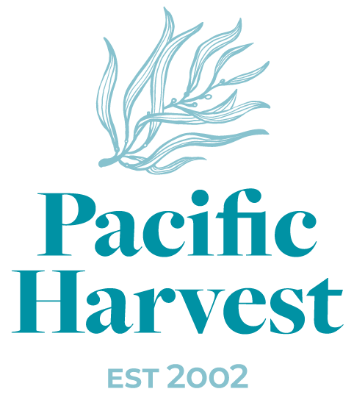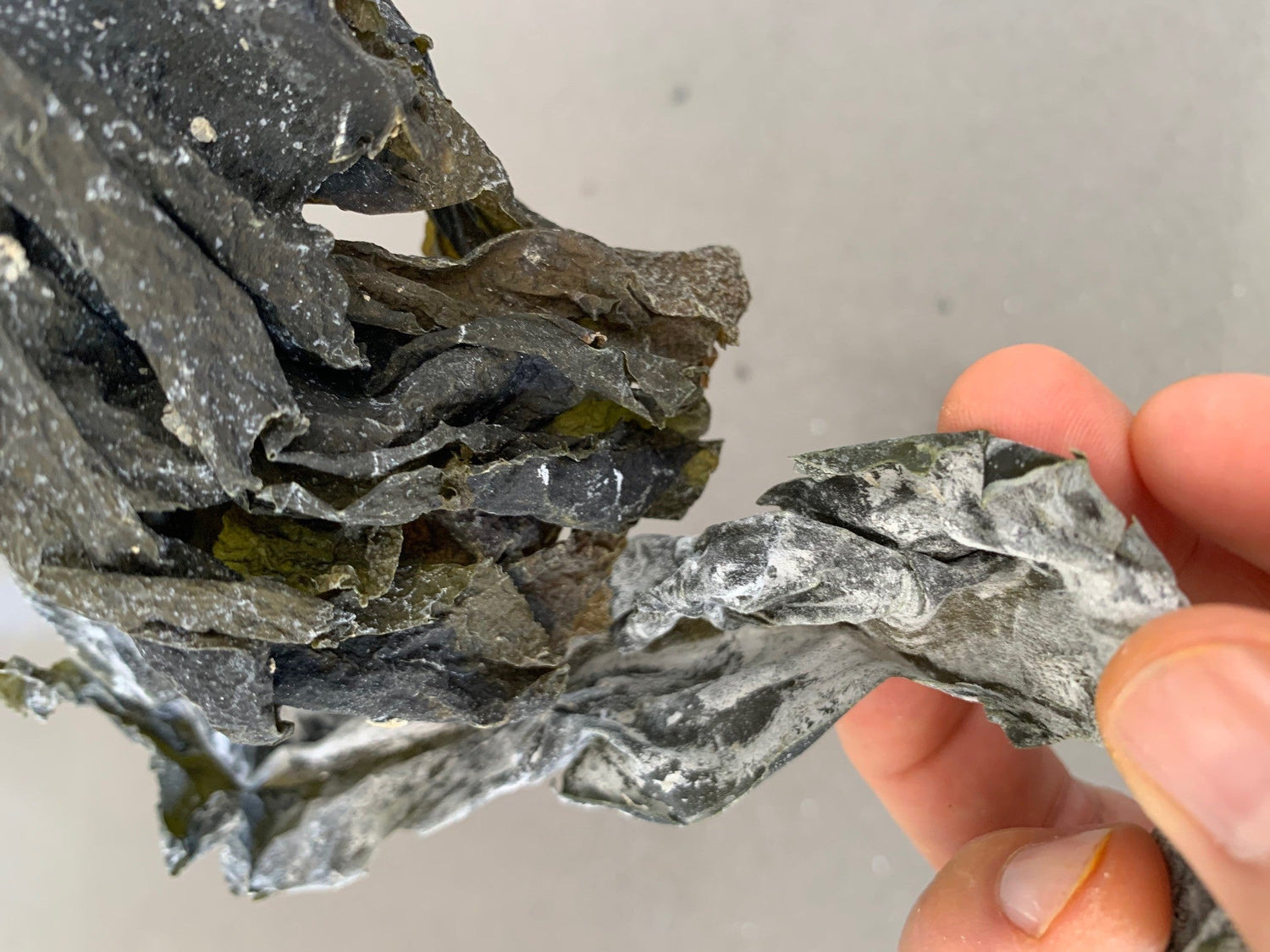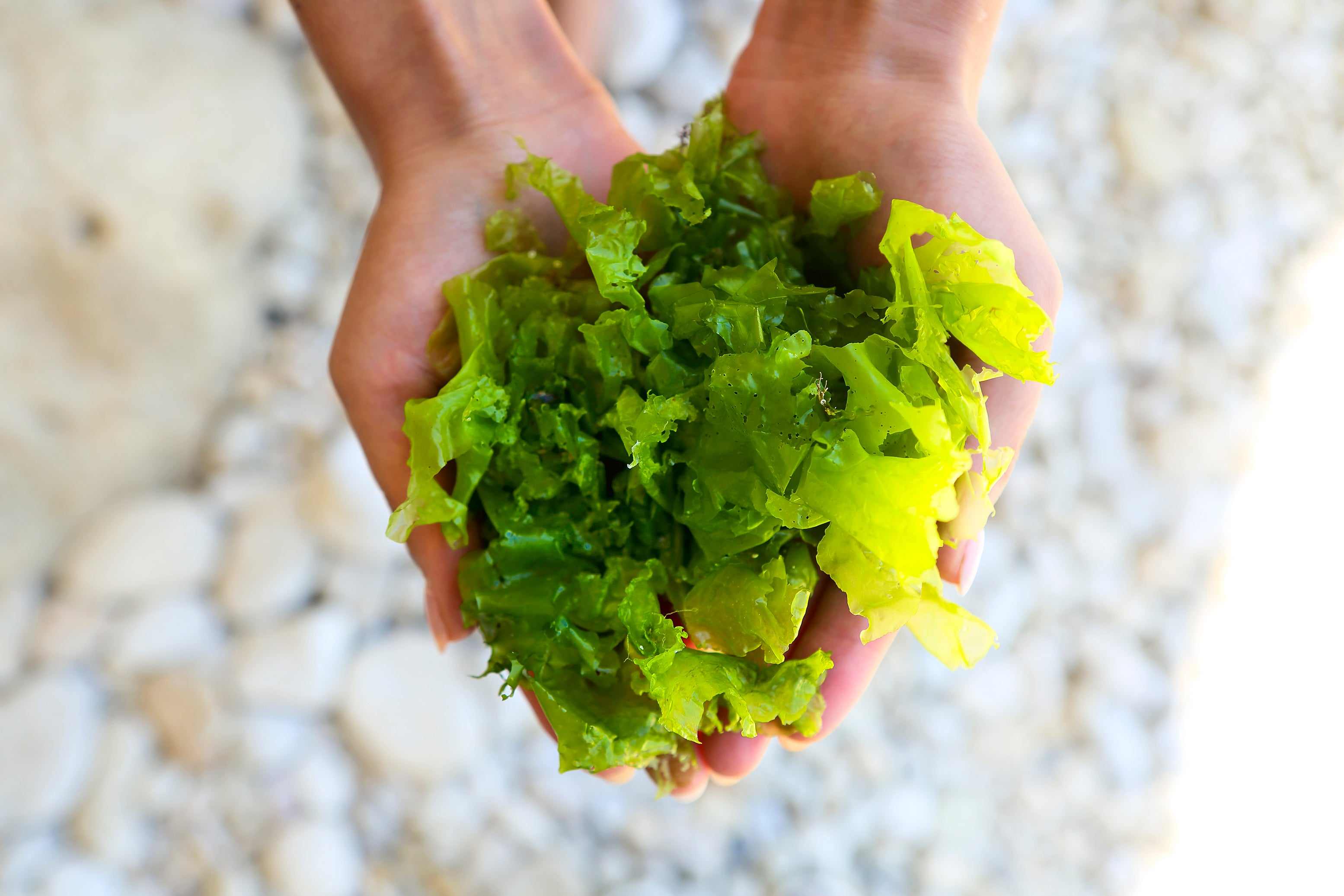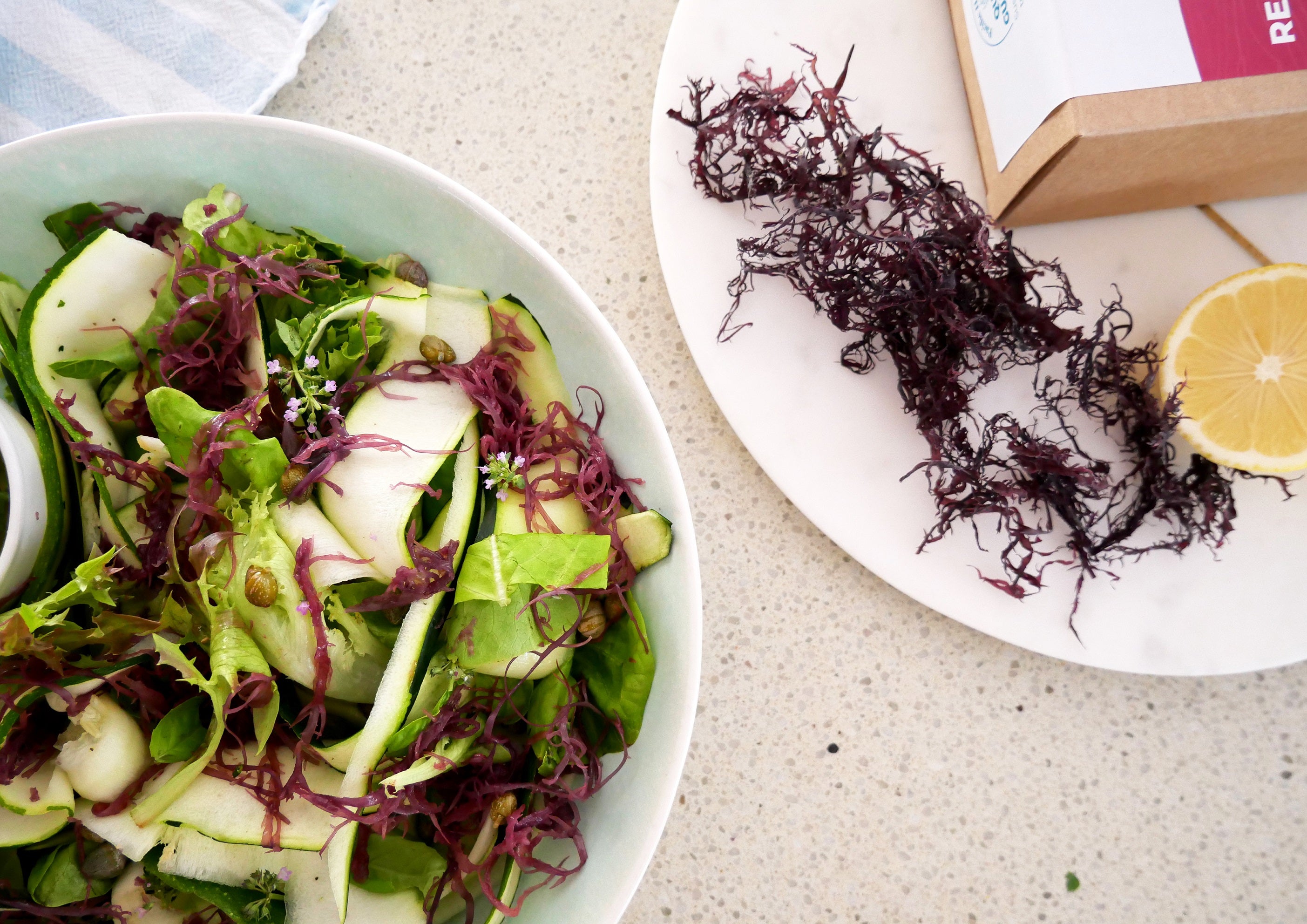Wakame seaweed offers an astonishing array of health benefits that stem from its high concentration of essential nutrients and the presence of unique compounds which support the cardiovascular system, maintain hormonal balance, strengthen bones, improve circulation and promote skin health to its natural and mineral density.
There is a growing body of research showing how eating wakame can have a positive impact on many areas of health, as well as play a role in healing symptoms of auto-immune and chronic diseases such as cancer and diabetes.
Wakame’s health and wellness properties
Wakame offers many unique therapeutic properties and health benefits, including:
- Bio-available iodine: seaweeds offer the best source of iodine available in nature, and it is essential that we consume iodine through our diet as our bodies can’t synthesise it. Brown seaweeds, like Wakame, tend to offer the highest concentration of iodine, essential for optimal health. Iodine helps to regulate the thyroid, supporting our metabolism. Studies have indicated that iodine can restrict or reverse breast tumors, which may help to explain why breast cancer rates are so low in Japanese female populations who consume large quantities of seaweed in their diet relative to other cultures.
- Calcium and magnesium: 100 grams of wakame seaweed can contain approximately 15 milligrams of calcium, about 15% of our recommended daily intake (RDI), while the same amount contains about 107 milligrams of magnesium, which is roughly 25% of our RDI. Calcium strengthens our bones and teeth; magnesium is required for the healthy functioning of the nervous system, as well as helping the body absorb calcium.
- Omega-3 (EPA): just as fish contain heart-healthy omega-3 fatty acids from the algae they consume, humans can get their omega-3 intake straight from the source by consuming wakame. Omega-3 is an essential fatty acid not made by the human body, so we must consume it to support our metabolism. This vital nutrient protects us from several health conditions, including anxiety, depression, memory issues related to aging, and rheumatoid arthritis.
- Iron and protein: Wakame can have a relatively high iron and protein content than other seaweeds.
- Plant-based folate and B12: Wakame can offer a source of these essential vitamins necessary for copying and synthesising DNA, producing new cells and supporting nerve and immune function. Folate is one of the most critical vitamins for a healthy pregnancy. A folate deficiency is highly risky for pregnant women as it may lead to fetal developmental issues. For vegans and vegetarians, wakame can provide a source of B12, which is hard to find in other plants and typically needs to be supplemented.
- Hormone balance: the iodine, manganese, iron and calcium found in wakame are vital minerals that help to balance hormones naturally. Manganese and calcium help to improve symptoms of PMS, as evidenced by a study published in the American Journal of Obstetrics and Gynaecology which found that women with lower levels of manganese in their blood experienced more pain mood-related symptoms during PMS and menstruation.
- Cancer – as with most brown seaweeds, wakame offers a good supply of lignans, which are believed to be important in protecting against estrogen-related cancer, especially breast cancer. The findings of a 2005 study published in the journal Cancer Science showed wakame seaweed to be effective in suppressing breast tumour growth in rats, along with a 2004 study that suggested the fucoxanthin found in wakame may act as a chemopreventive and chemotherapeutic compound in colon cancer cells.
- Obesity – wakame contains elements shown to have fat-burning properties. Scientists at the Hokkaido University in Japan conducted a study in which it was discovered that fucoxanthin (a pigment that facilitates photosynthesis, responsible for wakame’s typical brown colour) had the potential to reduce fat deposits in rats. Fucoxanthin fights fat in two ways: It encourages the action of a protein that causes fat oxidation, which is found in the type of fat that surrounds organs, and it promotes DHA production in the liver, which helps to decrease bad cholesterol or LDL. Fucoxanthin also reduced rats' and mice' abdominal white adipose tissue weights, which is accountable for heart health issues and obesity.
- Diabetes – wakame contains an essential nutrient, fucoxanthin, which exerts an anti-diabetic effect. A 2009 study conducted in Japan examined the anti-obesity and anti-diabetic effects of fucoxanthin-rich wakame lipids on obese mice. Before the Wakame treatment, the mice showed signs of hyperglycemia, hyperinsulinemia and hyperleptinemia. Adding wakame to the mice’s diet improved their symptoms. It minimised their conditions, leading researchers to conclude that wakame can assist in preventing and reversing diabetes, weight management for obesity and other related disorders by reversing insulin resistance.
- Reduces blood pressure and cholesterol – studies have analysed the positive effect of the consumption of wakame on reducing hypertension and lowering cholesterol by altering the activities of enzymes involved in fatty acid metabolism in the liver.
Wakame in Asia - ‘Food is medicine'
Throughout Asia, especially in Japan and Korea, the nutritional value of wakame has been widely acknowledged and utilised for centuries. Many Asian cultures view wakame as medicinal. It is still used today for blood purification, intestinal strength, skin and hair health, supporting healthy function of the reproductive organs and promoting menstrual regularity, and being given to those recovering from disease to support their journey back to health.
In Korea, wakame soup (miyeokguk) is popularly consumed by women after giving birth because wakame seaweed leaves contain high levels of calcium and iodine, nutrients that are important for nursing mothers who may be depleted by pregnancy and childbirth. Korean women consume wakame during pregnancy to support their baby’s healthy development. Wakame has cultural importance for its health-giving properties and is traditionally eaten on birthdays as a reminder of the first food the mother has eaten, and passed on to her newborn through her milk, thus bringing good fortune for the rest of the year.
Try Wakame today! It is also exceptionally flavourful and versatile in the kitchen - read 7 Ways to Use wakame in everyday cooking.
Pacific Harvest offers a range of flakes and leaves. Select your preference from wild-harvested or farmed options.




